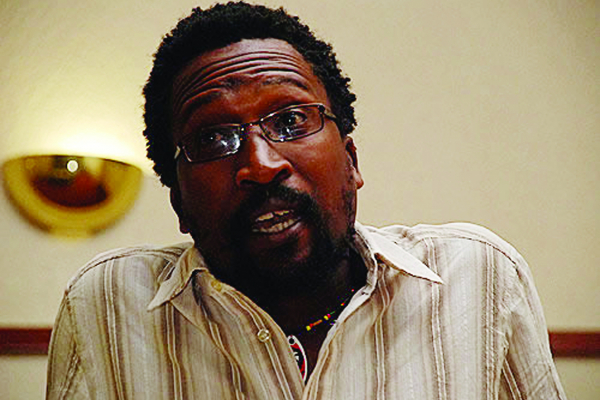
President Emmerson Mnangagwa’s spokesperson and permanent secretary in the Media, Information and Broadcasting Services ministry, George Charamba’s recent statement on the scheduled 2018 harmonised elections should have quite literally stopped the press. Or at least had one or two an activist apoplectic about the pre-empting of what would/should be a democratic process.
By Takura Zhangazha
At a conference organised by the Zimbabwe Electoral Commission (Zec) and the Zimbabwe Media Commission (ZMC) and other media stakeholders, he is reported to have said that these elections are about international re-engagement and (international) legitimacy of the Zimbabwean government and the country.
To quote him at the length:
“This election is about restoring international re-engagement and legitimacy; that is where we are. It must be flawless, it must be transparent, it must be free, it must be fair, it must meet international standards, it must be violence free and therefore it must be universally endorsed because it is an instrument of foreign policy . . . it’s about re-engagement and legitimacy; we are playing politics at a higher level.”
This was a statement said with a great amount of confidence. Not only on the basis of its assumed irrefutable political logic, but also its evident link with the expected political fortunes of Mnangagwa’s short tenure government.
Read in another way and looking for nuance, Charamba’s statement is a declaration of intent on behalf of the ruling establishment/party. And its most obvious intention is to win this election. Not in aide of true democracy. But, instead, only in order to further its re-engagement with global powers and capital while at the same time shedding off any international concerns about its “electoral” legitimacy beyond accusations of coup d’etats.
So, for the ruling establishment, this election is a mere formality to what it considers a consolidation of its intended long duree hold onto political power, all the while currying favour with global capital and giving pretense to concerns of a liberal international political gallery.
- Chamisa under fire over US$120K donation
- Mavhunga puts DeMbare into Chibuku quarterfinals
- Pension funds bet on Cabora Bassa oilfields
- Councils defy govt fire tender directive
Keep Reading
Everything else, therefore, around the 2018 election is not necessarily driven by any deep notions of commitment to democratic practice let alone values. At least not by those with incumbency.
So, as they say, this election will appear to be the most normal, the most peaceful, most observed or monitored and even most reported in decades. The end effect, however, is pretty much choreographed and elitist.
Choreographed in the sense that it is almost the equivalent of a political rite of passage for those that would have been accused of undemocratically/forcibly removing a president from power. They, therefore, need this election, not as a rite of passage fraught with the risk of an electoral loss, but more with a guarantee of a legitimacy that may be more for the outside world than it is for the country’s own citizens.
This may not matter as much as most elections on the African continent have to pass the test of global capital in collaboration with global superpowers (if you can tell the difference between the two).
What makes Zimbabwe’s case unique is that the collusion between the incumbents, global capital/superpowers may be enough to ensure the election passes the legitimacy test and enhances the re-engagement (neoliberal) agenda.
And I do not think that Charamba’s statement demonstrates any fear of the mainstream political opposition, let alone an unexpected “cliffhanger” political situation in which his party loses the election. The opposition, divided as it is, fits snugly into the broader scheme of things. The ruling establishment needs an opposition for it to pass the test. If the MDC-T was not there on its own, they would, for the purposes of 2018, have invented it.
But there is an opposition which appears to have greater freedom to campaign than it had under former President Robert Mugabe. The only regret is that the opposition may be too preoccupied with itself to miss the full import of Charamba’s statement. And in any case, the whispers in the corridors of opposition political power is that the 2018 election is a dress rehearsal for 2023.
So a greater majority of opposition leaders don’t expect to win this year. They, however, want to either be in parliament or be considered strong enough to have the ear of a “victorious” establishment and hopefully be around to be presidential candidates in 2023.
So what Charamba calls “high stakes” is not so sophisticated. Its basically a new cohesion of the ruling party leaders, private capital and religious leaders in order to consolidate a new hold on power with an intention at permanence in it. The main opposition players, mostly by default, but others a little more deliberately, are bit part players in this (with due recognition and material reward to be realised at a later stage).
You may ask, does any of this really matter to the people? A well-considered response would be yes it does, and where there is any doubt, yes it should. What we are witnessing is a coagulation of two types of elites. The political and the economic. The former being those at the head of Zanu PF (with a sprinkling of opposition individuals/leaders) and the latter being global and local private capital(ists). They are all united in one thing, their (long-term) right to dine exclusively at the high table of the free market.
Takura Zhangazha writes here in his personal capacity. This article first appeared on takura-zhangazha.blogspot.com











